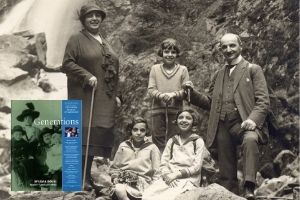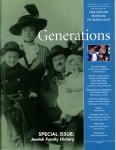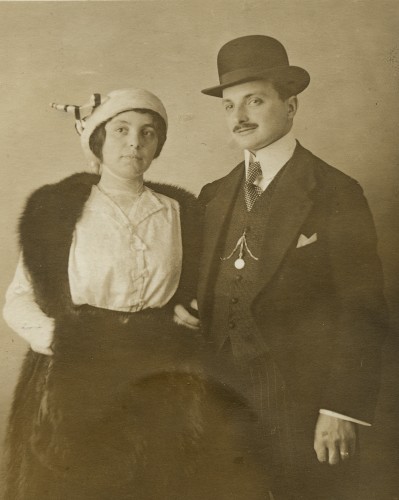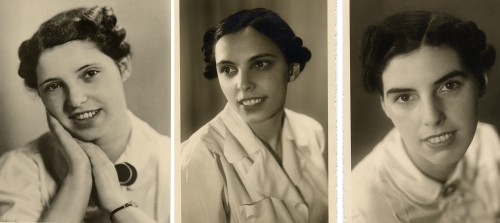Dispossession and Adaptation

The Weil Sisters Rebuild Their Family in America
 Article written by Anita Kassof, former JMM associate director. Originally published in Generations – Winter 2002: Jewish Family History. Information on how to purchase your own copy here. Many thanks to JMM collections manager Joanna Church for re-typing this article.
Article written by Anita Kassof, former JMM associate director. Originally published in Generations – Winter 2002: Jewish Family History. Information on how to purchase your own copy here. Many thanks to JMM collections manager Joanna Church for re-typing this article.
Introduction
Toni Weil was twenty years old the evening she watched as the synagogue in her hometown of Freiburg, Germany burst into flames. For her, seeing the apathy with which her non-Jewish neighbors greeted the spectacle was far more painful than witnessing the destruction itself. At that moment she knew that something terrible was happening to the Jews, because “no one came to put out the fire.”
That night, November 9, 1938, the Nazis unleashed a violent pogrom upon the Jews of Germany. Brown-shirted stormtroopers rampaged through Jewish shops and homes, looting and destroying merchandise, slashing pictures and feather beds, smashing dishes and furniture, shattering windows, and sowing terror. More than 100 Jews died in the melee, hundreds of synagogues were burnt, and Jewish men were summarily arrested and sent to concentration camps. For the 350,000 Jews still living in Germany, the Night of Broken Glass was a wake-up call. Nearly 200,000 of their brethren had already emigrated. The event proved to those who remained behind that there could be no adaptation and adjustment for Jews in Nazi Germany; life as they had known it was irreparably destroyed. The event precipitated among the Jews a mad scramble to escape from Germany and find any haven that would accept them.


As a young woman, Toni Weil understood that she had no future in a Germany that had become, in the space of five years of Nazi rule, horribly and cruelly unrecognizable. To survive, she and her family would have to abandon every vestige of their once secure and familiar past in Germany. Together with her mother and her sisters, Toni engineered her father’s release from Dachau (where he had been taken in the wake of the mass arrests), sold the family business, and helped arrange the family’s departure from Germany.
Toni and her two sisters were in their teens when Hitler came to power in 1933, yet they worked doggedly to find a way out of Germany. Their parents, who had built comfortable lives in Freiburg, were slower to wake to the Nazi menace, unable to believe, at first, the extent of their dispossession from the land they called home. It was their daughters’ persistence that ultimately saved the family. After an odyssey that was in turns agonizing and exhilarating, they were reunited in Baltimore.
Continue to Part II: An Odyssey Begins
All quotations and family history information are based on oral interviews with Toni Weil (JMM OH 0246, July 8, 1990), Julius Mandel (JMM OH 0268, June 23, 1991), Erna Weil, and Brenda Weil Mandel, and on materials in the Mandel collection (JMM L2002.102).

1 reply on “Dispossession and Adaptation”
Thanks for info. Is the Weil Mandel Way (off of Shawan Road in Cockeysville) connected to this fascinating family?